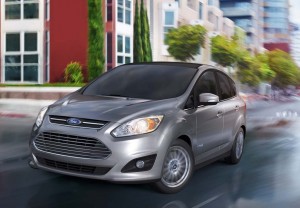Ford is opening up its portfolio of patents and offering competitors access to those covering electric vehicle technologies. Just last year, Ford filed for 2,000 patents in the U.S., of which 400, or more than 20%, were related to EVs.
The move comes a year after CEO Elon Musk offered access to the patent portfolio of battery-carmaker Tesla Motors. Unlike the California start-up, Ford isn’t providing its intellectual property rights for free. But Ford’s move isn’t simply to get the licensing fees.
“Innovation is our goal,” explained Kevin Layden, director, Ford Electrification Programs, in a news release. “The way to provide the best technology is through constant development and progress. By sharing our research with other companies, we will accelerate the growth of electrified vehicle technology and deliver even better products to customers.”
Ford has been one of the more aggressive manufacturers when it comes to expanding its portfolio of battery-based vehicles – which includes six models like the Focus Electric EV and the C-Max Energi plug-in hybrid. But like its competitors, it has been stymied in efforts to expand consumer demand for such vehicles. Even factoring in conventional hybrids, electrified vehicles currently account for barely 4% of the U.S. new car market.
There are a number of reasons experts cite for the slow uptake. Batteries are still costly and offer relatively limited range. There’s also a chicken-and-egg issue. With low volumes, energy providers have been reluctant to provide more public charging stations.
That part of the equation may soon change, however. A new report by IHS Automotive says the availability of chargers will “skyrocket by 2020.” That includes a new generation of Level III, super-fast chargers that can give a vehicle like the Focus Electric an 80% “fill-up” in as little as 15 minutes.
(New Daimler partnership aimed at developing wireless charging system. Click Here for the story.)
Ford currently has 650 electrified vehicle patents and roughly 1,000 more patent applications in progress. And it is hoping to file for plenty more over the next few years.
The maker plans to hire another 200 engineers this year to work on its electrification program – which is now housed in an all-new lab on Ford’s R&D campus in the Detroit suburb of Dearborn.
The idea of opening up a patent portfolio is far from new. Makers have often licensed technology, though they’ve also been highly protective of patents that might provide a major competitive advantage. But the rules of the industry are rapidly changing.
(Click Hereto check out our review of the new 2016 Hyundai Sonata Hybrid and Sonata Plug-in Hybrid.)
Faced with tough new safety, emissions and fuel economy standards around the world, automakers are finding it difficult to do everything alone, noted David Cole, director-emeritus of the Center for Automotive Research, in Ann Arbor, Michigan. That has led to some unusual alliances. Ford, for example, is working with Toyota on fuel cell technology. It also is developing a new line of fuel-saving 10-speed transmissions as part of a partnership with General Motors.
“As an industry, we need to collaborate while we continue to challenge each other,” said Ford’s Layden. “By sharing ideas, companies can solve bigger challenges and help improve the industry.”
(Chevy adding Apple CarPlay, Android Auto to 14 of its 2016 models. Click Here for more.)


Unfortunately for society the auto makers are being forced to build impractical EVs to satiate the crack induced mandate by Obama and the EPA requiring 54.5 mpg CAFE which is unattainable based on existing technology.
Thus consumers will pay thru their orifice for the pipedreams of Obama and the EPA instead of using proper science based evolution of the internal combustion engine. All of the battery powered EVs being sold in the next 5+ years will be worthless as fuel cell technology replaces batteries.
The perception that the world needs to free itself from crude oil is technically ignorant and hype to benefit a few at the cost to many.